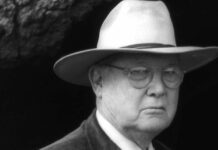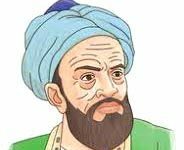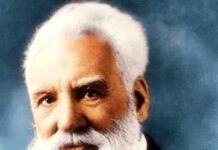Discover the comprehensive biography of Alexander the Great, the legendary Macedonian conqueror who built one of the largest empires in history. Explore his early life, military conquests, vision for cultural integration, and enduring legacy that shaped the ancient world.”
Alexander-Brief Life Sketch
Alexander was the emperor of Macedon in ancient Greece and the great conqueror of the world. He was born in Pella, Greece, in 356 BC. His father’s name was Philip- II king of Macedon and his mother’s name was Olympias. In his childhood, Alexander was educated by a teacher named Leonidus. From the age of 13 to the age of 18, he studied under the famous Greek philosopher Aristotle.
He ascended the throne in 336 BC at the age of 20 after the death of his father Philip II. As soon as he ascended the throne he prepared for world conquest and soon Alexander’s dominion spread over the whole of Greece. He conquered Asia Minor, Syria, Egypt, Turkey, Persian Gulf, Afghanistan etc. in just three years from 330 BC, and conquered North-West India in 327 BC. At that time there was no political unity among the kings of Indian kingdoms. There were many small kingdoms. Some of these little kings were brave and mighty, although they could not stand together against Alexander due to a lack of mutual understanding. This is why the small kingdoms on the west bank of the Indus River almost yielded to Alexander’s supremacy. King Amvi of Takshila on the east bank of the Indus River also surrendered to Alexander without a fight. However, the king of the region between the Jhilam and Chenab rivers did not surrender and was attacked by Alexander’s large army. He marched against Alexander on the banks of the Jhilam River with 30,000 infantry, 4,000 cavalries, 30 chariots and 200 elephants. Alexander’s army couldn’t fight with the old army on the other side of the Jhilam River. Alexander secretly crossed the river Nair and encountered Puru at a place called Kari. In this war, Puru had shown extraordinary heroism. Twelve thousand of Puru’s soldiers were killed in the battle and Puru himself was taken as a war prisoner while wounded. Historically, this battle was known as the ‘Battle of the Jhilam River’. Alexander was fascinated by Puru’s heroism and Alexander returned him half of his kingdom. After this, he crossed the Jhilam River and proceeded to the eastern Bipasha River and conquered many kingdoms. Alexander planned to cross the Bipasha River and conquer the east, although his troops reluctantly postponed the conquest and returned home.
Before he departed from India, he authorized Puru to govern the regions between the Jhilam and Bipasha Rivers and the region of west of the Jhilam River. Alexander died in Babylon on June 13, 323 BC, at the age of 33, on his way back to his homeland. After his death, Alexander’s vast empire was divided among his generals. Alexander’s invasion of India marked the beginning of a nexus between the East and the West. 0 0 0
Alexander-Comprehensive Biography
Introduction
Alexander III of Macedon, known as Alexander the Great, is one of history’s most celebrated military leaders and conquerors. Born on July 20, 356 BCE, in Pella, the ancient capital of Macedonia, Alexander’s life was a series of remarkable achievements, from uniting Greece to creating one of the largest empires of the ancient world. His influence extended far beyond the battlefield, shaping the cultural and political landscapes of Asia and Europe and leaving a legacy that endures to this day.
Early Life and Education
Alexander was born to King Philip II of Macedon and Queen Olympias. His father, Philip, was an astute military leader who transformed Macedonia into a formidable power, while his mother, Olympias, was a deeply religious woman with a strong personality and connections to the royal family of Epirus. Alexander’s upbringing was marked by his parents’ complex relationship, which influenced his ambitious and sometimes volatile nature.
From a young age, he displayed exceptional intelligence and bravery. Recognizing his potential, Philip ensured that his son received the best education available. At the age of 13, Alexander became the student of the renowned philosopher Aristotle. For three years, Aristotle taught him a broad range of subjects, including philosophy, science, medicine, and literature. This education instilled in Alexander a love for knowledge and a respect for diverse cultures, which would later influence his approach to governance.
Ascension to the Throne
In 336 BCE, when Alexander was just 20 years old, King Philip II was assassinated under mysterious circumstances. He ascended the throne amidst political turmoil and immediately faced challenges to his authority. Several Greek city-states, including Athens and Thebes, saw Philip’s death as an opportunity to regain independence. Demonstrating his tactical acumen and decisiveness, Alexander swiftly quelled these rebellions, razing Thebes to the ground as a warning to others. His swift consolidation of power marked the beginning of his legendary career as a military commander.
The Conquest of Persia
One of Alexander’s most significant ambitions was to conquer the Persian Empire, which was the dominant power in the ancient world. In 334 BCE, with a well-trained and loyal army, he crossed the Hellespont into Asia Minor, marking the start of his campaign against Persia.
Alexander’s first major battle was the Battle of the Granicus, where he defeated the Persian satraps of Asia Minor. This victory opened the way for him to capture the coastal cities, which were crucial for cutting off the Persian navy. In 333 BCE, he faced the Persian King Darius III at the Battle of Issus. Despite being vastly outnumbered, Alexander’s strategic genius led to a decisive victory, forcing Darius to flee and leaving his family in Alexander’s hands.
Continuing his campaign, he marched down the Phoenician coast and laid siege to the island city of Tyre, a feat that took seven months. His victory at Tyre, followed by the capture of Egypt where he was declared the son of the god Amun, solidified his control over the eastern Mediterranean. In 331 BCE, Alexander faced Darius again at the Battle of Gaugamela, where he delivered the final blow to the Persian Empire. Darius was assassinated by his own men shortly after, and Alexander declared himself the King of Asia.
Expansion into Central Asia and India
After the fall of Persia, his ambitions grew even larger. He pushed further east into Central Asia, facing fierce resistance from the local tribes. His campaigns in this region were marked by relentless combat and harsh conditions, but Alexander’s determination and leadership never wavered. In 327 BCE, he turned his sights toward the Indian subcontinent, crossing the Hindu Kush into the territories of modern-day Pakistan.
In India, he faced King Porus at the Battle of the Hydaspes River in 326 BCE. Despite Porus’s formidable use of war elephants, Alexander emerged victorious. Impressed by Porus’s bravery and leadership, Alexander allowed him to retain his kingdom, making him an ally. However, the grueling campaign and the harsh monsoon conditions took a toll on his troops. When they reached the Hyphasis River, his weary soldiers, longing to return home, refused to march further. Respecting their wishes, Alexander turned back, marking the easternmost extent of his empire.
The Return Journey and Death
On the return journey, his army faced severe hardships, including a dangerous trek through the arid Gedrosian Desert, where many soldiers perished due to lack of water and supplies. Despite these challenges, Alexander remained undeterred, continuing to consolidate his hold over the vast territories he had conquered.
In 324 BCE, he returned to Babylon, the administrative heart of his empire. He began making plans for further expansion and the integration of his diverse empire, including the fusion of Greek and Persian cultures, a vision he called the “Policy of Fusion.” He encouraged marriages between his Macedonian officers and Persian noblewomen and recruited Persians into his army, aiming to create a unified ruling class.
However, his grand plans were cut short. In June 323 BCE, after a night of heavy drinking, he fell ill with a fever that worsened rapidly. Within days, he was bedridden, and on June 10 or 11, 323 BCE, Alexander the Great died at the age of 32. The exact cause of his death remains a topic of debate, with theories ranging from malaria to typhoid fever, or even poisoning.
Legacy and Impact
His death plunged his empire into chaos, as he left no clear heir. His generals, known as the Diadochi, fought amongst themselves for control, leading to the fragmentation of the empire into several Hellenistic kingdoms. Despite the political turmoil, Alexander’s influence endured. His conquests spread Greek culture and ideas across a vast territory, from the Mediterranean to India, an era known as the Hellenistic Period.
The cities he founded, most notably Alexandria in Egypt, became centers of learning and culture. The fusion of Greek and Eastern cultures under his rule laid the groundwork for the spread of Hellenism, which influenced art, science, and philosophy for centuries. His vision of a cosmopolitan world, where diverse peoples were united under a single rule, was revolutionary for its time.
lexander’s Personality and Leadership
He was not only a brilliant strategist and a fearless warrior but also a charismatic leader who inspired loyalty and devotion among his followers. His ability to adapt to different cultures and his openness to learning from those he conquered set him apart from many other conquerors. However, he was also known for his temper and ruthless treatment of those who opposed him, as seen in his execution of the satrap Bessus, who had betrayed Darius III, and the massacre at Thebes.
His personal life was marked by both passion and tragedy. His closest relationships were with his mother, Olympias, and his childhood friend and general, Hephaestion, whose death in 324 BCE deeply affected him. He married Roxana, a Bactrian princess, and later, as part of his policy to unite his empire, he took two more wives of Persian nobility. His marriages were as much political as personal, aimed at securing his rule over the diverse populations of his empire.
Conclusion
Alexander the Great remains one of the most fascinating figures in history. His extraordinary achievements as a military commander, his vision of a culturally integrated empire, and his enduring impact on the world make him a towering figure of the ancient world. Though he died young, his legacy has lived on, inspiring countless leaders, scholars, and adventurers throughout the ages. His life is a testament to the heights of human ambition and the complexities of leadership, leaving an indelible mark on the course of history.
Alexander-Facts
Here are some interesting facts about Alexander the Great:
Early Life and Background
- Born in 356 BCE: Alexander was born in Pella, the ancient capital of Macedonia, to King Philip II and Queen Olympias.
- Tutored by Aristotle: From age 13 to 16, Alexander was tutored by the great philosopher Aristotle, who taught him philosophy, science, medicine, and literature.
- Descendant of Heroes: Alexander claimed to be descended from the Greek heroes Heracles (Hercules) on his father’s side and Achilles on his mother’s side.
Military Genius
- Never Lost a Battle: Despite fighting numerous battles throughout his life, Alexander never lost a single one, showcasing his strategic brilliance.
- Conquered the Persian Empire: By defeating King Darius III, Alexander conquered the vast Persian Empire, which extended from modern-day Turkey to India.
- Battle of Gaugamela (331 BCE): Considered one of his greatest victories, Alexander’s tactical genius helped him defeat Darius III, despite being outnumbered.
Empire and Conquests
- Largest Empire of the Time: At its peak, Alexander’s empire stretched from Greece to Egypt and as far as India, covering over 2 million square miles.
- Founded Over 20 Cities: He founded numerous cities, the most famous being Alexandria in Egypt, which became a major center of learning and culture.
- Named Cities After Himself: Many of the cities he founded were named “Alexandria” in his honor. The most famous is Alexandria in Egypt.
Personal Life
- Married Three Times: Alexander married Roxana, a Bactrian princess, and later married two Persian noblewomen, Stateira and Parysatis, as part of his policy to unify his empire.
- Close Friendship with Hephaestion: He had a deep bond with his childhood friend and general, Hephaestion, whose death profoundly affected him.
- Known for His Temper: Alexander was known to have a fiery temper. In a fit of rage, he killed his close companion, Cleitus the Black, who had saved his life in battle.
Death and Legacy
- Died at 32: Alexander died in Babylon in 323 BCE at the age of 32. The cause of his death is still debated, with theories ranging from poisoning to typhoid fever.
- Left No Clear Heir: Alexander left his empire “to the strongest” without naming a specific heir, leading to decades of conflict among his generals, known as the Wars of the Diadochi.
- Cultural Impact: His conquests spread Greek culture across Asia, initiating the Hellenistic Era, which saw the blending of Greek and Eastern cultures.
- Vision of Unity: Alexander encouraged marriages between his Macedonian soldiers and local women to integrate different cultures and created a new class of rulers blending Greek and local elements.
- Worshiped as a God: In Egypt, he was proclaimed the son of Zeus-Ammon and was worshiped as a god in his lifetime, a rare honor for a living person.
- His Body Was Mummified: After his death, Alexander’s body was mummified and placed in a golden sarcophagus. It was later transferred to Alexandria, Egypt, where it remained for centuries.
Miscellaneous
- Dreamed of Conquering the World: Alexander’s ultimate ambition was to conquer the known world, and he planned campaigns to expand further into Arabia and the western Mediterranean before his untimely death.
- Inspirational Figure: Alexander has been an enduring figure in history and legend, inspiring countless military leaders, including Julius Caesar, Napoleon Bonaparte, and others who sought to emulate his conquests and leadership.
N.B. The article originally belongs to the book ‘Introduction to World Personalities‘ by Menonim Menonimus. Alexander-Brief Life Sketch
Books of Composition by M. Menonimus:
- Advertisement Writing
- Amplification Writing
- Note Making
- Paragraph Writing
- Notice Writing
- Passage Comprehension
- The Art of Poster Writing
- The Art of Letter Writing
- Report Writing
- Story Writing
- Substance Writing
- School Essays Part-I
- School Essays Part-II
- School English Grammar Part-I
- School English Grammar Part-II..
Books of S. Story by M. Menonimus:
Books of Biography by M. Menonimus:
- The World Writers-Brief Biographies
- Introduction to World Writers
- Introduction to World Personalities
- Love of Reputed Persons ..
Related Search:
- Lives of Poets
- Writers’ Lives
- Top Hundred Writers
- Best Writers of All Time
- Most Eminent English Poets











